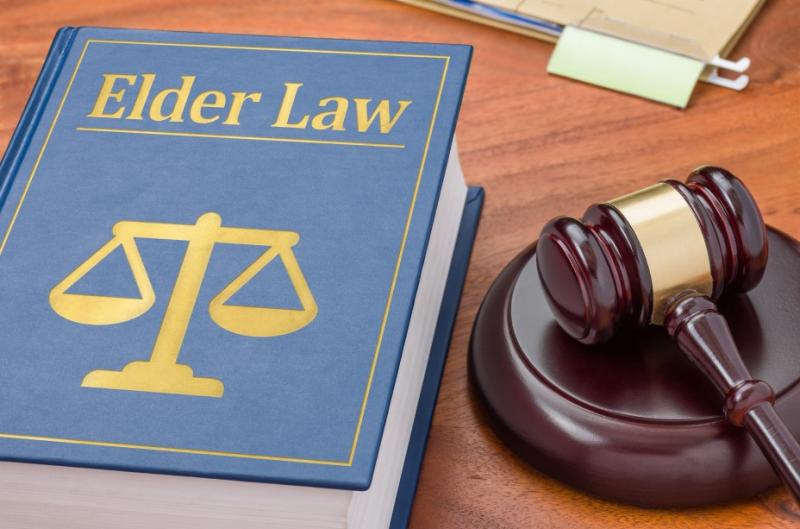4 Things You Should Know About Elder Law

Getting old is inevitable. Unfortunately, when you age, it doesn’t mean you’re exempted from any financial or legal issues. This is one of the reasons why planning for your senior life is crucial for your protection and that of your family.
Typically, you might need to make some care-, financial-, and estate-related decisions to make sure everything runs smoothly as you age. These decisions have to do with the scope of elder law. In simple terms, elder law is a branch of law that tackles the legal issues affecting the aging population. Its primary purpose is to guide an elderly in doing proper planning to achieve financial autonomy and freedom.
So, if you’re about to reach your senior years, below are the things you should know about elder law and how you can use it to your advantage:
- Drafting Of Powers Of Attorney
As you begin to age and become seriously ill, you might not be able to make significant decisions about matters involving your care and financial wellbeing. Because of this, the elder law gives you the opportunity to prepare for these things by drafting powers of attorney.
Generally, a power of attorney refers to a written document authorizing a family member to act in your capacity. This means the person being appointed in the legal document will represent you in all issues involving your long-term care and finances. In order to make a valid and binding power of attorney, you should work with a credible elder law attorney who can help you create the scope of the designation. By doing this, you can ensure the family retains control over your care and financial needs instead of the court.
- Protection Of Assets
As you reach your senior years, your physical, mental, and emotional capabilities will begin to decline. When this happens, you need to be admitted to a nursing home for your long-term nursing care. This is where the public benefits come into play.
Ideally, there are public benefits available to seniors to help them fund the costs of their care, and these include Medicaid. Medicaid, for instance, is a federal-state program that offers health insurance coverage to certain types of people, such as seniors, people with disabilities, and low-income children. But, before you can become a Medicaid recipient, you should fulfill the government’s strict guidelines on income and assets. This means that you should initially pay for all the expenses, and the Medicaid will take over only after all your financial resources run out.
With these circumstances, you’ll need the assistance of a lawyer to help you preserve your assets and properties while having access to certain government benefits. This asset protection strategy is commonly called a trust. When your wealth is under a trust agreement, the government can’t use or run after it to determine your eligibility for the benefit.

- Physical, Mental, And Financial Abuse Issues
Senior people deserve a certain standard of care as they age. However, it has been a common practice for some families to put their elderly loved ones in a nursing home. That’s why if your family decides to admit you in a nursing facility, you might get abused by the caregiver and other staff. This abuse, for instance, can be in various forms, such as emotional, financial, physical, and sexual abuse.
So, if you want to ensure you’re protected from these unacceptable and unsafe conditions, you should work with an elder law lawyer to handle the legal aspects of the situation. They can help put a halt to the abuse by moving you to a safer location or contacting the police authorities to investigate the incident. Not only that, but hiring a legal professional can help you file a case against the at-fault party. This is to make sure that your rights and interests are protected in case abuse happens to you in the nursing home
- Matters Involving The Living Will
Another scope of elder law is the creation of a living will. Primarily, a living will refers to a legal document outlining a person’s personal wishes about what’ll happen in case a medical situation happens that might make them unable to make decisions for themselves.
Thus, as you get older, it’s a good idea to prepare a living will before the problem occurs. In doing so, you should hire an elder law lawyer to guide you with the whole drafting process. They can help you specify what type of care you want to get, including the life-saving interventions from the moment you can no longer decide for yourself. When this decision is made ahead of time, it’ll be easier for your family to decide what’ll happen to you.
Bottom Line
Essentially, elder laws vary from one state to another. That said, it’s crucial to understand what laws apply to your situation so you can make educated decisions that are within your best interests.
Therefore, if you’re preparing for your senior life, keep these things in mind so you’ll know how to protect yourself and your family from any financial and care issues that might come along the way.
More to Read:
Previous Posts:
Next Posts:




